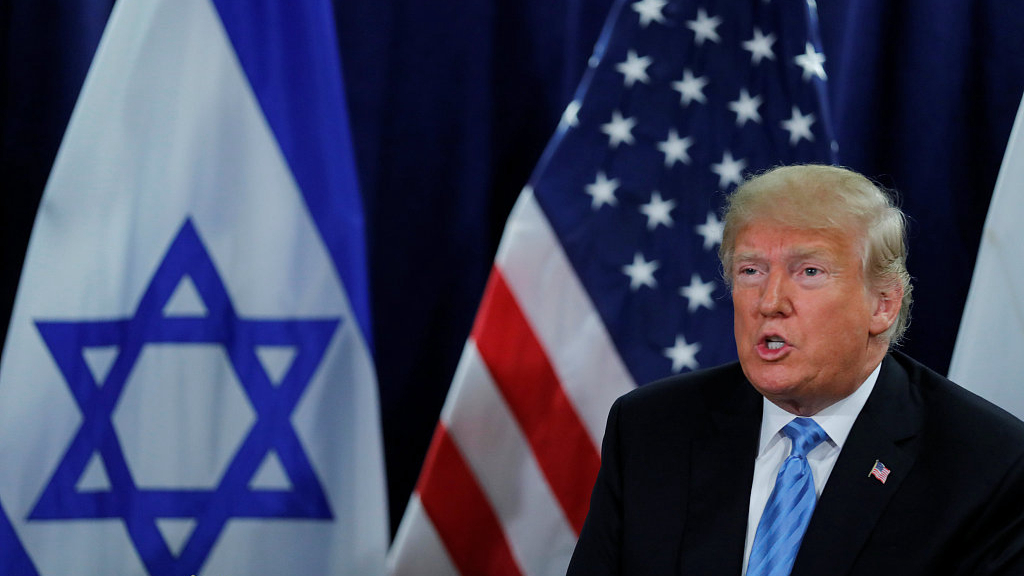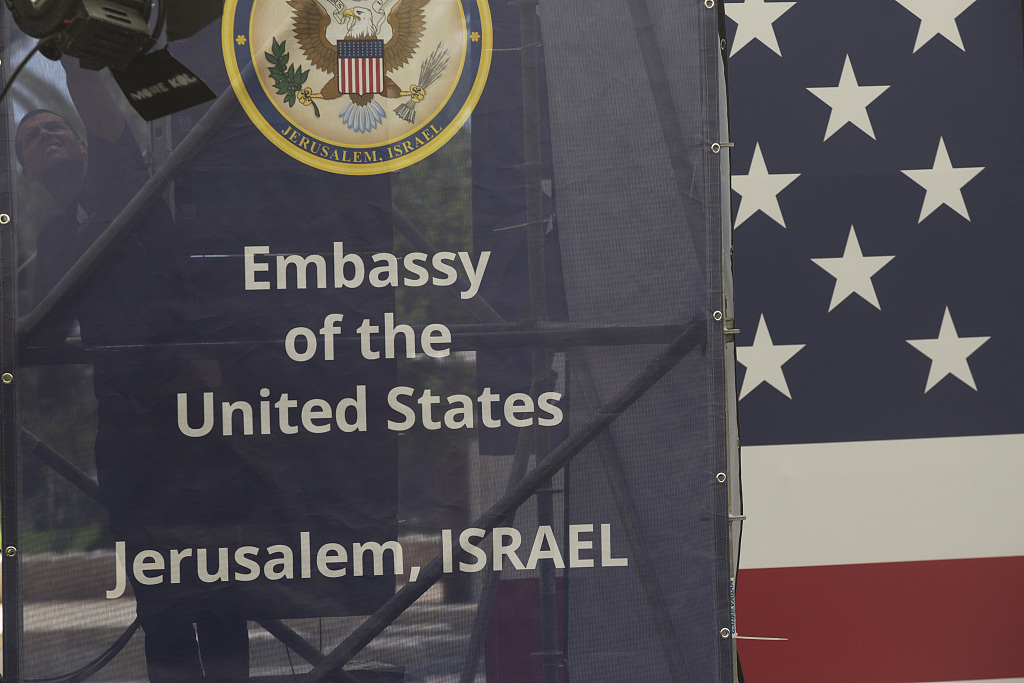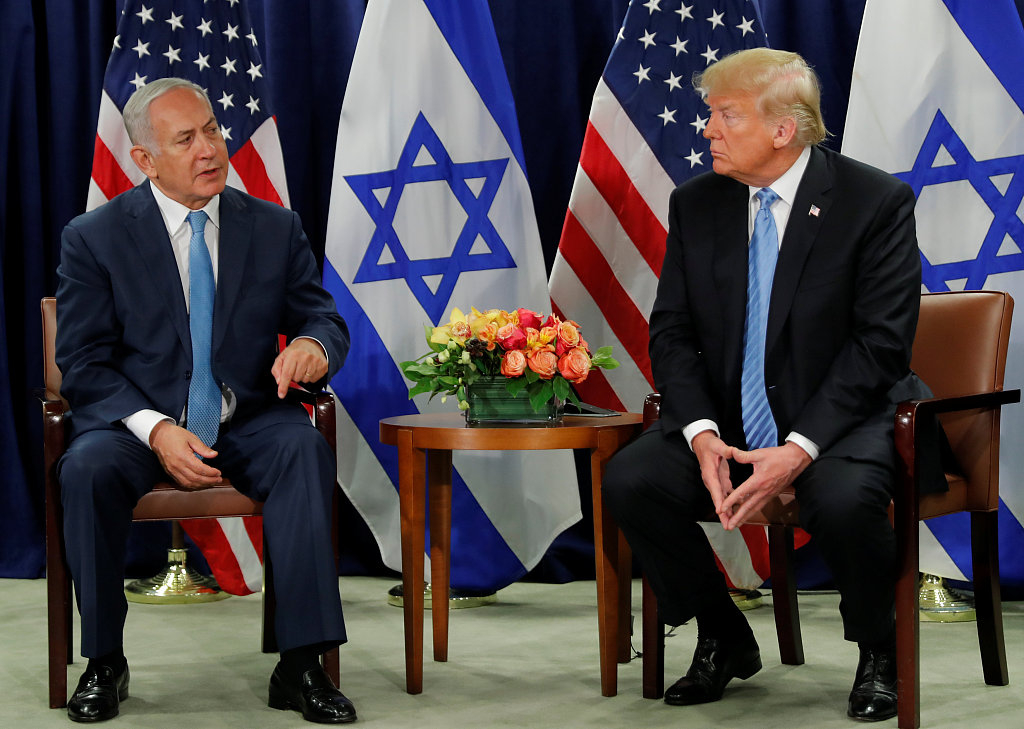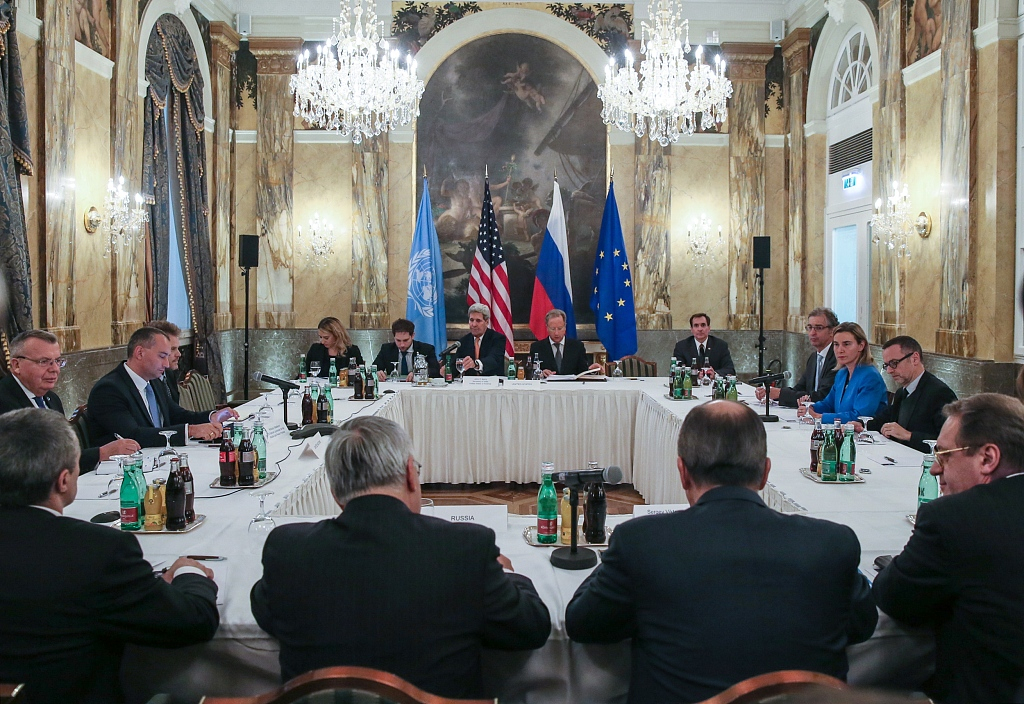

Editor's note: Guy Burton is Visiting Fellow at the LSE Middle East Centre and an Adjunct Professor at Vesalius College in Brussels. The article reflects the author's opinion, and not necessarily the views of CGTN.
Last Saturday, June 22, the White House finally unveiled its Peace for Prosperity plan for the Palestinians. It arrived with little fanfare and ahead of a conference scheduled to take place later this week in Bahrain.
Other than the U.S. and its allies, including Egypt, Saudi Arabia, the UAE, Jordan and Morocco, few others are expected to attend. It has already been written off by the Palestinian leadership, who claimed that they had no input into it. Why should this be?
At first glance, the plan looks unobjectionable. But, the problem lies in a wider context. First, Palestinians and their supporters question the good faith of the U.S. administration.
The plan, which was put together by President Donald Trump's son-in-law and adviser on the Middle East, Jared Kushner, has been delayed a number of times. In part, this reflected U.S. efforts to build support among its allies for the plan before announcing it – something that was difficult to do, given recent U.S. actions.
In December 2017, Trump outraged the Palestinians and the international community when he turned a long-standing convention on its head. He announced the U.S. embassy would move from Tel Aviv to Jerusalem, much to the glee of Israel's leaders, who have long pressed for it.
In so doing, he effectively denied the Palestinians' own claim to Jerusalem as their capital and a principle of the Oslo peace process that the status of Jerusalem would be decided through negotiations for a final settlement.

Israeli workers prepare the ceremony stage inside the U.S. consulate that will act as the new U.S. embassy in Jerusalem, Israel, May 13, 2018. /VCG Photo
The U.S. then followed up on that decision by cutting its contribution to Palestinian humanitarian assistance. Worth 200 million U.S. dollars a year, this constitutes a significant amount which goes to providing shelter, education and other services to Palestinians. The administration claimed that it wanted to direct the money to other, priority areas.
Opinion in the administration was divided: Secretary of State, Mike Pompeo, advised against the cut; but Kushner pressed for it, seeing it as a way of putting pressure on the Palestinian leadership with his plan. That bet, as it has transpired, did not come off.
Second, the plan makes no mention the Palestinian economy and society is struggling, namely the role played by Israel.
The situation between Israel and the Palestinians is asymmetric. Israel is a state, a full member of the UN and with access to financial and military resources which provide it with a measure of coercion. By contrast, the Palestinians are a people whose leadership is fragmented between the Fatah party's control of the West Bank and the Islamist Hamas party in Gaza.
Israel's dominance over the Palestinians is manifested in what the activist and writer, Jeff Halper, calls a "matrix of control", whereby Israel has established settlements in which over half a million settlers live. Many of them envelope the Palestinian neighborhoods of East Jerusalem while others are deep in the West Bank.
A system of parallel roads and barriers prevent the Palestinians from coming into contact with the settlers while their movements across the land are constrained by a system of checkpoints and permits.

U.S. President Donald Trump listens as Israeli Prime Minister Benjamin Netanyahu speaks during their bilateral meeting the 73rd session of the United Nations General Assembly at U.N. headquarters in New York, U.S., September 26, 2018. /VCG Photo
Third, the disparity between Israel and the Palestinians has been economic in nature from the start. When the two sides signed the Declaration of Principles (the Oslo Accords) to begin negotiations towards a final settlement in 1993, an addendum, , also known as the Paris Protocol, was attached to it the following year..
It effectively established a customs union between Israel and the Palestinians for the duration of the peace process – even though the process is effectively moribund, with no talks having taken place for over five years.
The Paris Protocol has obliged the Palestinians to accept the Israeli currency, the shekel, denying it its own monetary policy. In addition, Israel is responsible for the collection of taxes and customs duties. On occasion it has withheld their payment to the Palestinian authorities as a way to put pressure on them.
Fourth, the international community has so far shown itself either weak or unwilling to pressure Israel to move away from its current position.
Between 2007 and 2015, the UN Quartet – a grouping that included the UN, U.S., EU and Russia, all of which were most involved with resolving the Palestinian-Israeli conflict – had a high-profile figure as its representative and envoy: the former British Prime Minister Tony Blair.
Almost from the start, his involvement precluded any discussion about the political dimension of the conflict and its resolution, with his office focusing more on economic development for the Palestinians.

The UN's special coordinator for the Middle East peace process at a meeting of the Middle East Quartet, October 23, 2015. /VCG Photo
Arguably in the relatively more favorable environment of 2007 – when Israel's leadership was still talking to the Palestinians – the Quartet was able to broker an international donors' conference which raised 7 billion U.S. dollars.
In the years which followed, the West Bank experienced some economic growth and Blair was able to achieve the removal of some roadblocks and increase the number of goods allowed into Gaza. But none of this made a significant difference to the overall situation or challenged Israel's "matrix of control".
For that to happen would require a significant change to the status quo. It would require an end to the current arrangements in which Israel dominates the Palestinian economy. It would mean resolving the political differences first, in particular the right of the Palestinians to self-determination.
Only with a state and the ability to make independent economic choices will the Palestinian economy begin to develop. Without that, it will continue to be constrained.
(If you want to contribute and have specific expertise, please contact us at opinions@cgtn.com.)

Copyright © 2018 CGTN. Beijing ICP prepared NO.16065310-3
Copyright © 2018 CGTN. Beijing ICP prepared NO.16065310-3